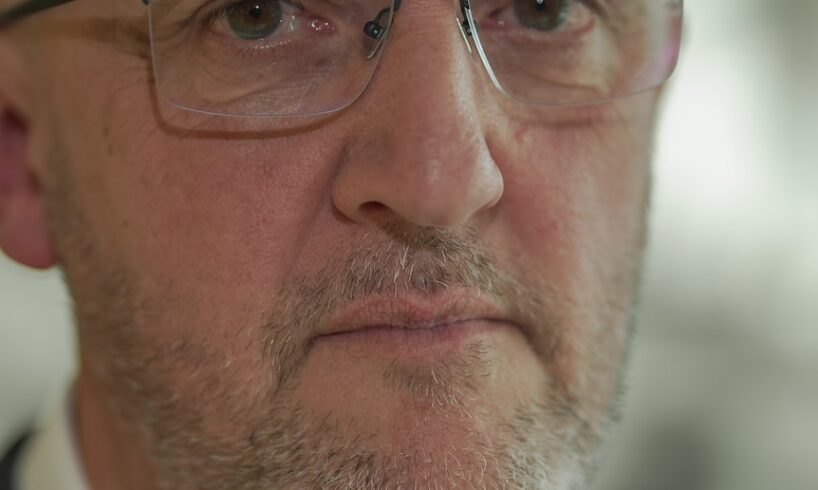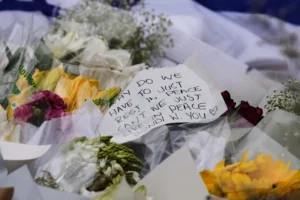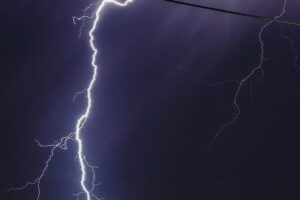
Australia’s domestic spy chief has used a major speech in Adelaide to warn foreign espionage is costing the nation at least $12.5 billion a year, while revealing ASIO has disrupted 24 “major espionage and foreign interference” operations in the last three years alone.
ASIO director-general Mike Burgess has also confirmed that Australia expelled “a number” of undeclared Russian intelligence officers in 2022, whilst berating some public officials for “head-spinning” complacency about the threats posed by overseas intelligence agencies.
Mr Burgess has struck an increasingly urgent tone about the threats posed by foreign interference in recent years, but tonight’s speech — delivered at the annual Hawke Lecture at Adelaide University — is his most detailed account laying out the scale of the threat.
The spy chief again listed China, Russia and Iran as three of the main nations behind espionage in Australia but said Australians would be “shocked” by the number of other countries that were also trying similar tactics.
He said the 24 major operations disrupted over the past three years were “more than the previous eight years combined” and that strategic competition was driving a “relentless hunger for strategic advantage and an insatiable appetite for inside information”.
“Nation states are spying at unprecedented levels, with unprecedented sophistication,” he said.
“ASIO is seeing more Australians targeted — more aggressively — than ever before.”
The ASIO chief warned that strategic competition was driving a “relentless hunger for strategic advantage and an insatiable appetite for inside information”. (ABC News: Adam Kennedy)
He gave multiple examples, such as spies who “convinced a state bureaucrat to log into a database to obtain the names and addresses of individuals considered dissidents by a foreign regime” and a foreign intelligence service that “directed multiple agents and their family members to apply for Australian government jobs — including with the national security community — to get access to classified information”.
He also said foreign companies connected to intelligence services had “sought to buy access to sensitive personal data sets; sought to buy land near sensitive military sites; and sought to collaborate with researchers developing sensitive technologies”.
The spy chief also told a story about an overseas delegation visiting a “sensitive Australian horticultural facility” who snapped branches off a “rare and valuable variety of fruit tree” in order to steal them.
“Almost certainly, the stolen plant material allowed scientists in the other country to reverse engineer and replicate two decades of Australian research and development,” he said.
Mr Burgess also said that foreign spy agencies were taking an “unhealthy interest” in accessing military technology secrets shared through the AUKUS pact.
“Foreign intelligence services are proactive, creative and opportunistic in their targeting of current and former defence employees: relentless cyber espionage, in-person targeting and technical collection,” he said.
“In recent years, for example, defence employees travelling overseas have been subjected to covert room searches, been approached at conferences by spies in disguise and given gifts containing surveillance devices.
“Defence is alert to these threats and works closely with ASIO to counter them.”
Cost estimate of espionage ‘conservative’
Mr Burgess didn’t name any of the countries behind the new plots he identified, but released a new report that ASIO developed with the Australian Institute of Criminology, which tries to count the cost of espionage.
He said while calculating the cost was “challenging”, the report found espionage cost the Australian economy at least $12.5 billion in the 2023-2024 financial year — an estimate Mr Burgess called “conservative” and which likely “significantly underestimates” the true cost of espionage.
Friends among the nations spying on Australia
“Many entities do not know their secrets have been stolen, or do not realise they’ve been stolen by espionage, or do not report the theft,” he said.
The spy chief also once again took aim at businesses and officials who he suggested were complacent or deeply naive about the threat of espionage, saying he’d “lost count of the number of times senior officials and executives have privately downplayed the impacts of espionage”.
“I’ve watched corporate leaders literally shrug their shoulders when told their networks are compromised,” he said.
In unusually frank remarks, Mr Burgess also heaped scorn on an unnamed Australian trade official.
“Most recently, a trade official told ASIO there’s no way the Chinese intelligence services would have any interest in his organisation’s people and premises in China,” he said.
“All too often, we make it all too easy.”
And he once again rounded on Australian public servants who reveal details about their work online — including on professional networking sites — saying about 7,000 of them “reference their work in the defence sector” and “close to 400 explicitly say they work on AUKUS”.
“Nearly two and a half thousand publicly boast about having a security clearance and 1,300 claim to work in the national security community,” he said.
“While these numbers have fallen since I first raised the alarm two years ago, this still makes my head spin … surely these individuals, of all people, should understand the threat and recognise the risk?
“I get that people need to market themselves but telling social media you hold a security clearance or work on a highly classified project is more than naive; it’s recklessly inviting the attention of a foreign intelligence service.”
Mr Burgess said that “thousands of Australian students, academics, politicians, business people, researchers, law enforcement officials and public servants at all levels of government” have been targeted for espionage through networking sites.
“The vast majority resist, report or ignore the approaches,” he said.
“Unfortunately, though, some are sucked in and end up being used — recklessly or consciously — to gather information for a foreign country.”





